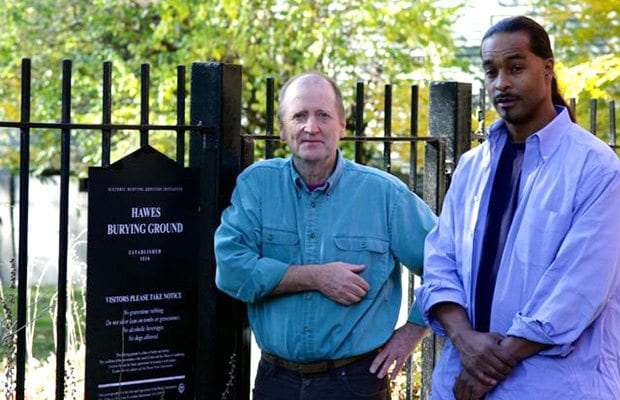Roxbury Community College celebrates 19th century abolitionist David Walker

Orator, organizer, entrepreneur, unsung hero — early 19th-century Boston resident David Walker was a militant voice of the black freedom struggle, and in 1830, he was the most hated and feared man in America.
Wanted dead or alive in two states, Walker was both condemned and renowned for his oratorical gifts and dedication to educational, spiritual and political renewal. The David Walker Memorial Project will host a symposium on his life and impact on Oct. 29 at Roxbury Community College.
A self-avowed “restless disturber of the peace,” his “Appeal to the Coloured Citizens of the World” is now recognized as one of the most important liberation documents of the early republic. Yet he died under mysterious circumstances in 1830 and was buried in an unmarked grave in South Boston.
Born a freeman in North Carolina, Walker was a leader of Boston’s black community and the abolitionist movement in the 1820s. Walker called for the immediate abolition of slavery and for those in bondage to rebel. His writing was secretly circulated through the South via underground networks. It is credited with inspiring and influencing generations of black leaders, including Frederick Douglas, Maria Stewart, W.E.B. Du Bois, Martin Luther King Jr. and Malcolm X.
The David Walker Memorial Project visits RCC this October energized by two goals. The first is to make more people aware of Walker’s life and works, especially his seminal contribution to ending slavery in the United States. Second, the organization seeks to build a public memorial in his honor.
Accordingly, the panel discussion at RCC will review the life and achievements of this uncompromising abolitionist.
The event will be a collegial and informal gathering to discuss the David Walker Memorial Project and its relevance for both the hidden history of Massachusetts and contemporary events in the aftermath of the Arab Spring, in an age of “inconvenient truths.” A variety of panelists will share their insights into Walker’s struggles, along with comments on why his “Appeal to the Coloured Citizens of the World” speaks to us in this time of “The New Jim Crow,” governmental gridlock and climate change.
Panelists include: historian Peter Hinks, author of a biography of Walker; L’Merchie Frazier, director of education at the Museum of African American History; and Horace Sheldon, historian and founder of Community Change Inc. The panel will be moderated by Barbara Lewis, UMass Boston English professor and director of the university’s William Monroe Trotter Institute.
Topics for discussion will be: a glimpse of the vibrant small black community on the North Slope of Beacon Hill in 1825-1830, Walker’s unique and ingenious networking capabilities, the aspects of the “Appeal to the Coloured Citizens of the World” that made him such a controversial and provocative figure, how playwrights have depicted his saga, a review of details concerning his death, curriculum approaches to the teaching of the Walker saga in secondary and college classrooms, the legacy and contemporary relevance of Walker’s work in “post-racial” 2013 America and comments on the genesis, objectives, ongoing events and scope of the David Walker Memorial Project.
“David Walker is a key figure in the movement toward self-liberation,” said UMass Boston’s Lewis. “He looks at slavery from the position of someone who has known difference — a big difference. He sees himself as a human being. He writes from the viewpoint that freedom is his right and the right of all of the people who have been denied freedom.”
According to organizers, the panel is designed to inform, stimulate and educate and invites input from a variety of disciplines, including black studies, literature, criminal justice, political science, history, economics, sociology and theater.
The panel discussion will have a question-and-answer period. It is free and open to the public.
The Walker symposium at RCC is being held in conjunction with a number of other the David Walker Memorial Project events. These include a “Remembrance March” across the Boston Common to the Museum of African American History on Oct. 27 at 2 p.m. and a stage play, “Raising David Walker,” at Hibernian Hall in Roxbury on Oct. 24, 25, 26 and 27.






